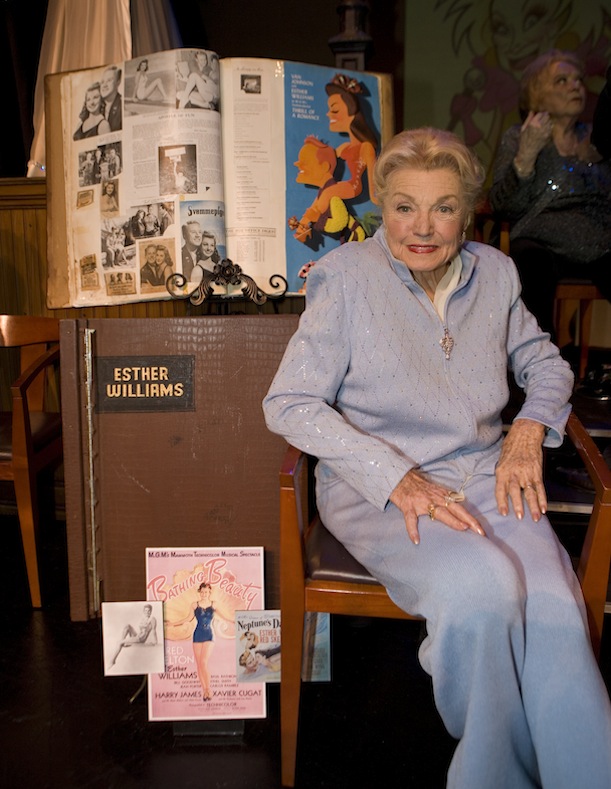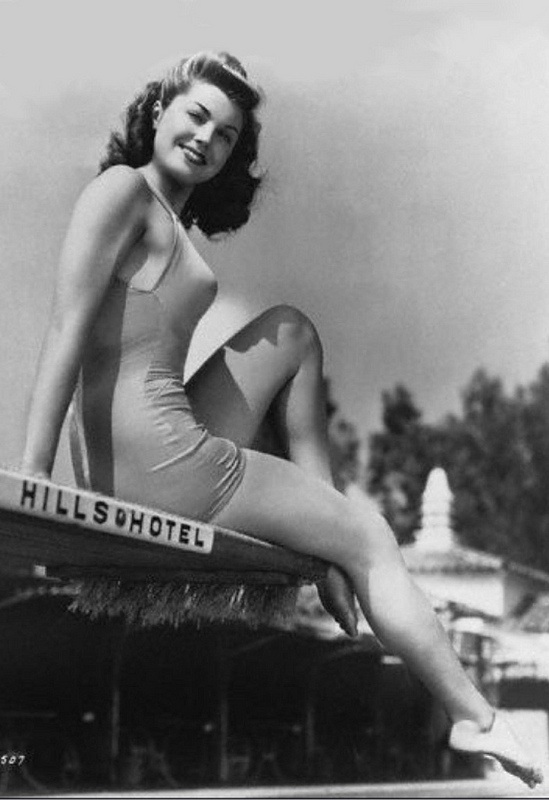Swimming Champion and Actress Esther Williams Dies, Her Legacy Lives on at the Smithsonian
A 2008 donation to the National Museum of American History of the glamorous star’s enormous scrapbooks are filled with mementos of her career

Esther Williams in 2008 with two scrapbooks of her famous career in “aqua-musicals.” Photo courtesy of the American History Museum
American swimming champion-turned-movie star Esther Williams died today. She was 91, and passed away this morning in her sleep, according to her family and publicist.
Williams grew up outside of Los Angeles, where she competed for a city swim team and won numerous titles and set national records as a teenager, including a 100-meter freestyle victory at the Women’s Outdoor National Championship in 1939. The next year, she was selected for the Olympic team, but the Games were cancelled when World War II broke out.
Williams left competition in 1940 to make a living, selling clothes in a department store for a few months until she was invited by showman Billy Rose to work a bathing beauty job in his Aquacade show at the World’s Fair. While performing, she was spotted by MGM scouts and given a contract with the film studio in 1941. She became a film sensation over the next decade by starring in the studio’s hugely popular “aqua-musicals,” including Bathing Beauty, Neptune’s Daughter and Million Dollar Mermaid.
She swam more than 1,250 miles in 25 aqua-musicals throughout her film career.

Williams in 1945. Photo courtesy of Vintage Gazette on Flickr
In 2008, Williams donated to the National Museum of American History two giant scrapbooks that MGM kept of her time with the studio, each multiple feet-tall and made of wood. The books are filled with both professional and personal mementos. Williams was recognized throughout her career for her beauty and athleticism, so she appeared in numerous pin up posters and advertisements, as well as magazine and newspaper articles.
The scrapbooks are currently held by Williams’ publicist, but now should be on their way to the museum soon, says entertainment curator Dwight Blocker Bowers. They will likely go on display in a 2016 exhibition on American culture (currently the museum’s popular culture hall is closed for renovations).
Bowers thinks Williams will be remembered not only for putting swimming on the map in film, but also for the genuine star power she brought to the screen as a singer and actress. “You do not remember her just for the swimming sequences,” he says. “She matched her swimming ability with her ability to have a strong presence on the screen. She was a movie star. She was vibrant on screen.”
For more of Bowers’ thoughts on Williams, read the museum’s blog post on her here.
/https://tf-cmsv2-smithsonianmag-media.s3.amazonaws.com/accounts/headshot/paul-bisceglio-240.jpg)
/https://tf-cmsv2-smithsonianmag-media.s3.amazonaws.com/accounts/headshot/paul-bisceglio-240.jpg)